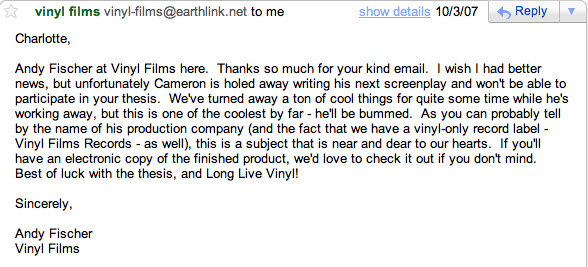 |
| Young rock journalist, Cameron Crowe (center) with shock rocker, Alice Cooper, right. |
 |
| Caroll Drug store on Coventry had a nice selection of magazines. |
I took the entire day and looked through the Billy Wilder-Cameron Crowe Conversations book. And maybe you don't know this, but we writers have a tendency to go off on tangents (non-inspirational)--anything to keep us from writing. Distractions are a necessary evil in our business, so, I sat at my desk and re-connected with why I love Crowe so much--he reminded me of myself. I remembered when I was a young music journalist thrust into a world that I was too young to comprehend. I had seen those youthful and wide-eyed photos of Cameron standing next to rock superstars and it reminded me of how I felt and must have looked as I sat in hotel rooms or backstage waiting for the latest music celebrity to sit down and tell me their story. I religiously read Crowe's byline. I enjoyed going to the newsstand and gazing up the colorful array of covers. I loved magazines. I loved journalism. I loved Cameron's work. His coverage of Led Zeppelin's tour in 1973 stands as a benchmark in my life. The article appeared in the Los Angeles Times, and yes, I read the LA Times. You could read any major newspaper if you visited a newsstand on a regular basis. I knew I would write about music one day just like my hero, so I had to read all the right magazines. I had to prepare by learning how to hang out. The British rock magazines were filled with lurid tales about ligging--getting all the freebies that come from gaining access to the backstage area of a venue. American magazines were filled with stories about groupies like Miss Pamela (Pamela Des Barres) and I wanted nothing to do with that scene. I wanted to write about it all.
 |
| Crowe's cover story: A legend was born and an idol created. |
 |
| The Colonial Arcade, a place for thoughtful magazine shopping and newspaper reading.. |
I remember spending weekends riding the St. Clair bus to downtown Cleveland. I would go to my favorite newsstands to buy magazines. There was a newsstand in the Colonial Arcade and one on 4th in Euclid. I read everything from Rolling Stone to CREEM Magazine! As I grew older, I had a friend who drove to Coventry where we went to Caroll Drug to buy magazines. We'd buy Rolling Stone, Right On!, Soul, Andy Warhol's Interview Magazine, NME (New Music Express), Melody Maker, CREEM, Billboard, The Village Voice, and any other popular music magazine. I never understood why they let us read the magazines before we bought them, but the newsstand owner in the Colonial Arcade always let us browse through the magazines looking to see whether they were worth purchasing.
What you don't know about me was that I was so inspired by Crowe's work as a music journalist, that I decided to write about my time as a music journalist as part of my Master's thesis, I contacted him. I told him that I was writing about the death of vinyl music. Below is his response:
While I didn't score an interview with Cameron Crowe, in a future blog, I'll begin sharing some of the interviews I did snag with legendary music critics like Anthony DeCurtis (Rolling Stone), Robert Christgau (Village Voice) and Dave Marsh (CREEM Magazine) to name a few. Reading those magazines turned out to be preparation for writing the biggest project to date--my thesis.


